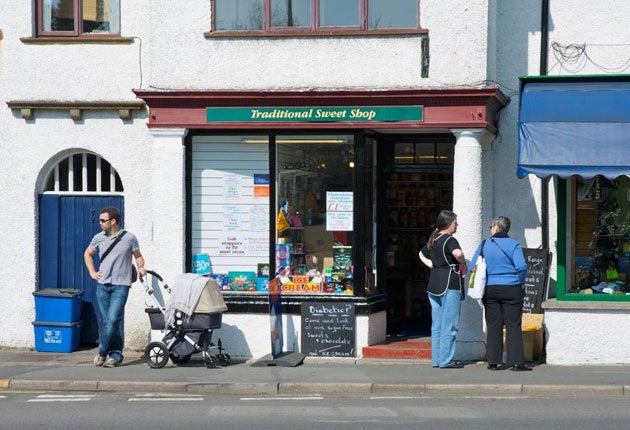Can anyone unlock the mystery of the Windermere Triangle?
Strange goings-on in town are being blamed on traffic lights and ghosts

One place is known for its olde-worlde teashops, hordes of tourists and picturesque cruises. The other is a mysterious watery graveyard for sailors and aviators that has baffled scientists and enthralled conspiracy theorists for decades. Yet the Lake District town of Windermere and the Bermuda Triangle share a similar phenomenon.
Shoppers and holidaymakers in the Cumbrian resort are reporting the presence of a "Windermere Triangle" – a small area of the town where electronic car fobs are rendered inexplicably useless. Dozens of people have been locked out of their vehicles in the affected zone and the distress alarm has been triggered in a security van collecting cash from the Co-op there.
Reports have centred around four parking bays outside the Threshers in Crescent Road and the off-licence's manager Anthony Dean has been called out repeatedly to help stranded drivers. He believes the town's new traffic lights are to blame, but Cumbria Council insists that it has consulted electronics experts and that such suggestions are unfounded.
But Mr Dean is certain that there is a link. He said: "One driver was really panicking about it as she couldn't open her car and she was in a rush, so I said 'Don't worry it, I'll help you,' and after about 10 minutes of trying, I said, 'Just go and press the crossing button at the traffic lights.'
"When they changed back from red to flashing amber the car door opened. It just seems to pick a car at random and there's no logic to it, no particular type of car or time of day."
Electronic key fobs operate by sending out coded short-wave radio signals to a receiver positioned inside the car. Town centre manager Paul Holdsworth said traffic lights used a different technology from key fobs but admitted that he was "completely stumped" as to the cause of the problem. He said: "My guess is that it's some piece of cordless technology that's not working properly in one of the buildings around here and that is causing interference, but I just don't know. Other theories being put forward in the town are interference from CB radios and even the presence of a malevolent ghost."
Professor Ken Durose, of the Department of Physics at the University of Durham, said the phenomenon was not confined to Windermere. He said colleagues had found themselves locked out of their cars at a university car park.
The source of the problem in that case was traced to equipment that was designed to link up with a telescope in the Namib Desert. The equipment had been left on by the French scientist who had been developing it while he went on holiday. "My guess is that something is chucking out radio frequency signals at significant power about where the problem is happening," Professor Durose said.
A spokesman for the Society of Motor Manufacturers said he was aware of the problems being experienced in Windermere. "These short-range radio frequencies are shared with other industries such as the toy industries so it could be that these are interfering with the fobs," he said.
But Judith Ainsworth is convinced that something more sinister is afoot after she experienced the problem with her Renault Megane Scenic a number of times. She said: "Either you can't unlock it, or you can't lock it in the first place. The other day I tried to lock the car with the fob and all four windows came down. We're calling it the Windermere Triangle after the Bermuda Triangle."
Unusual disappearances between the Straits of Florida, the Bahamas and the Caribbean were first logged in 1950, following the loss of a number of planes and ships. Flight 19, a US Navy training mission that went missing in the area, which is one of the world's busiest shipping lanes, is the most well-known case. Although recent research has suggested that the losses are not more common than in other parts of the ocean, the "Devil's Triangle" tag still prevails.
However, perhaps the greatest horror to befall Bermuda was when the Triangle was immortalised in a song by Barry Manilow in 1980 as a metaphor for doomed holiday romances – a fate the people of Windermere will be praying they escape.
Join our commenting forum
Join thought-provoking conversations, follow other Independent readers and see their replies
Comments